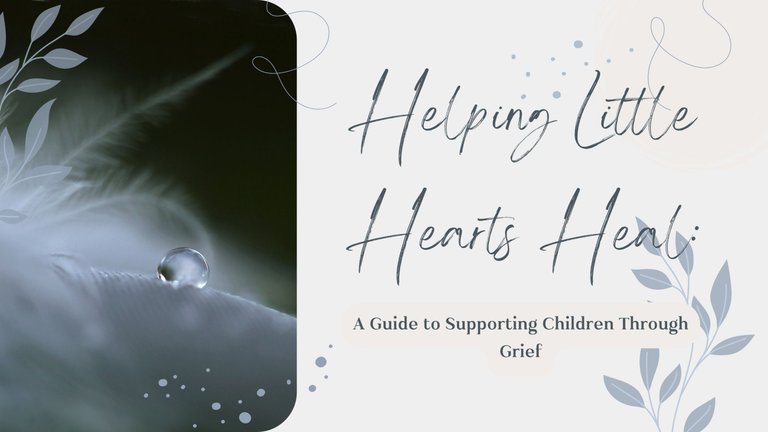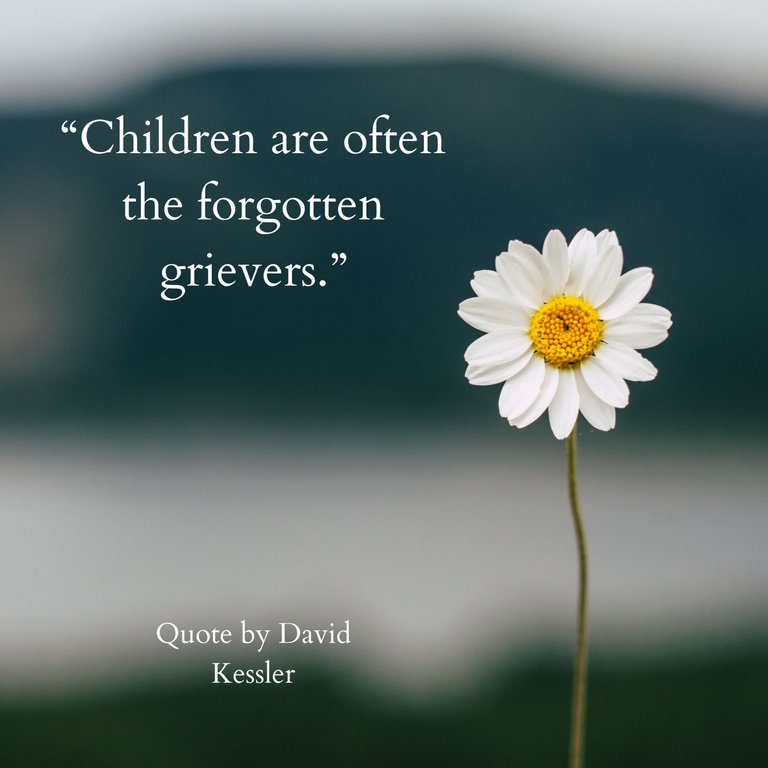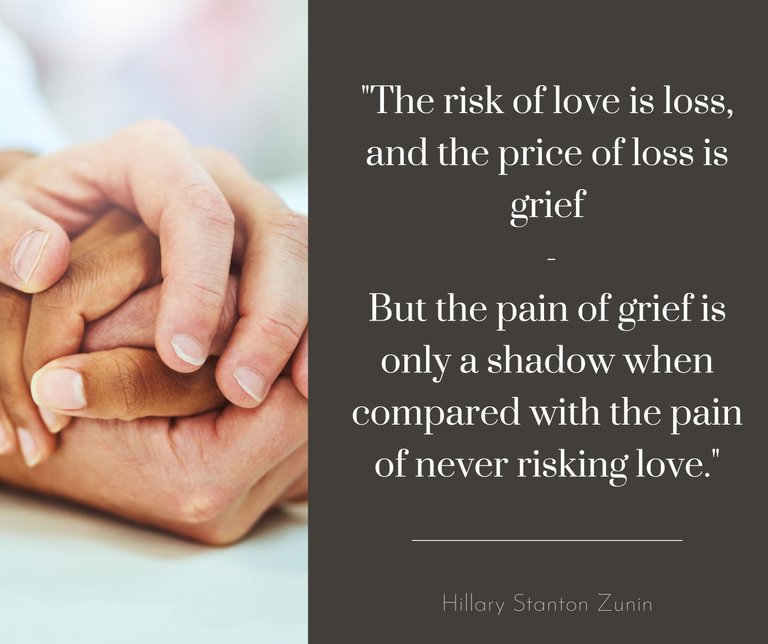
Everyone faces death at some point in his or her life. Dealing with loss and grief can already be difficult for an adult. But for children, this is usually even more difficult.
Still, it happens that children have to say goodbye to a loved one at a young age. A grandfather or grandmother, a parent or sibling. In a child's life, this event can have a huge impact.
Everyone grieves differently. Adults grieve differently than children do. One child needs to talk; the other puts grief away as deeply as possible. Perhaps you have ever wondered what goes on in a child during such a grieving process and how best to guide a child through this.
Well, this varies by age. Let me explain this further below.
The first years of life

Children have no real awareness of death in the first years of life. They also cannot yet distinguish between living and non-living things. However, when a loved one dies, they can sense this and miss the presence of the person and the warmth and attention the person gave.
Babies can also sense the tension in grieving people. The voices of grieving people can sound different and seem tense.
A baby may react to this as follows: vomiting, intestinal cramps, or diarrhea. If a child experiences a lot of emotional pain, the body may show more tension. The child may exhibit clenched fists and excessive movement of arms and legs.
Babies sense emotions and tensions well; try to take this into account by not transferring your own fears, emotions, and tensions about death to your child.
Preschoolers

It is difficult for them to understand that death is forever. For example, they think grandpa will come back to visit at Christmas, and mom will be back at school soon.
At this age, children can really miss the deceased and long to be together.
They have already come to understand the difference between life and death.
However, during their role play, death is also played out, but only temporarily. Different aspects of being dead can be reenacted, such as remaining still or reenacting parts of a funeral. This is their way of coming to grips with loss.
A preschooler will ask questions and show interest in this topic. Often, these questions are about the technicalities of death. "When you're dead, can you still hear?" "Can't you see anything anymore?

Preschoolers often express their grief through a change in behavior.
Going back to bedwetting or thumb-sucking may be the outcome. This is because they don't feel safe.
Because their vocabulary is still limited, they cannot articulate well how they feel, so they use behavior and play to make clear what they need.
Sometimes, this can also lead to anger and aggressive behavior.
The child may be happy one moment and intensely sad the next. This is because children live in the moment.
Out of the blue, they may say something about death or the person they have had to say goodbye to. Additionally, observing or hearing a topic related to death may prompt them to share their own experiences.
6- to 9-year-old children.

At this age, children realize that death is final. Although understanding what death is and that everyone dies is still a difficult concept,.
When children start fantasizing about what it would be like to be dead, it can cause anxiety because it can also cause a lot of confusion.
From about 7 years old, this level of thinking becomes more concrete, and children become more curious. It will ask questions such as, "When you die, where does your body go?" "When you are buried, what happens under the ground?"
As a parent, this may startle you and seem confrontational. But right now, it is important for children to get an honest answer to this. So that they get an accurate picture of what is going on.
They hear all kinds of things that are happening around them but are not yet able to deal with them properly. However, understanding this aids them in their grieving process and makes them less vulnerable.
Around the age of 9, children realize that everything that lives will eventually die. Loved ones, family, friends, but also themselves.

A 9-year-old child is quite independent at this age, but the death of a loved one can cause them to behave as if they were younger again. It can bring up childhood feelings.
Not just wanting to sleep in bed, wetting the bed again.
Your child may also want to protect you from grief and pain. By hiding his own pain and sadness. Then you see that with these children, the pain only comes up after a long time.
Children can ask a wide range of questions when they feel comfortable. All the unknown is asked, often a combination of curiosity and creepiness. As they become increasingly interested in what happens after death, this can also cause anxiety and confusion.
What can you do as a parent?

It is best to clearly answer the questions children ask, even if they can be direct and confrontational at times.
You may also point out your own ignorance to children. Many things are also unclear to adults about what happens after death. If you don't know the answer, tell your child the same thing. Then say, "I don't know, but I think..."
Reassure your child, and also be honest.
Many children also develop a fear of dying themselves, or that it is their fault that the person died.
Stick to your own beliefs and faith. If you yourself do not believe in heaven, angels, or rebirth, do not talk about it.
It's also not advisable to say that the deceased "went to sleep forever" or "went on a distant journey". Making a clear distinction is essential. By talking about a sleep or journey, the impression can be given that the deceased may yet return.
To give comfort, however, you can say that the person can no longer feel pain or cold.
Additionally, instill in a child the belief that shedding tears is acceptable.
When a child feels safe, tears also stop on their own accord.
Some tips:

Involve your child in saying goodbye.
Let your child make something for the deceased—a drawing, letter, or craft.
Consider your child's feelings, even if they don't show them.
Give your child positive attention and comfort.
Capitalize on moments that arise to talk about death.
Prepare a child well and discuss what will happen.
Stick to routines and rituals to give your child something to hold on to.
Also, allow fun during the grieving process.

@meraki7578💚

📷 Banners, dividers and quotes: Created with Canva Pro













Posted Using InLeo Alpha



